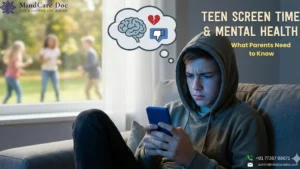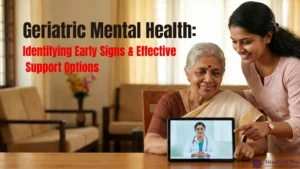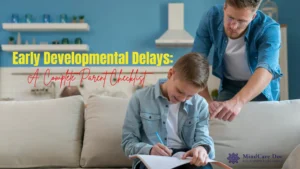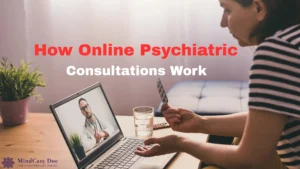Does your teen stay up past midnight gaming or scrolling?
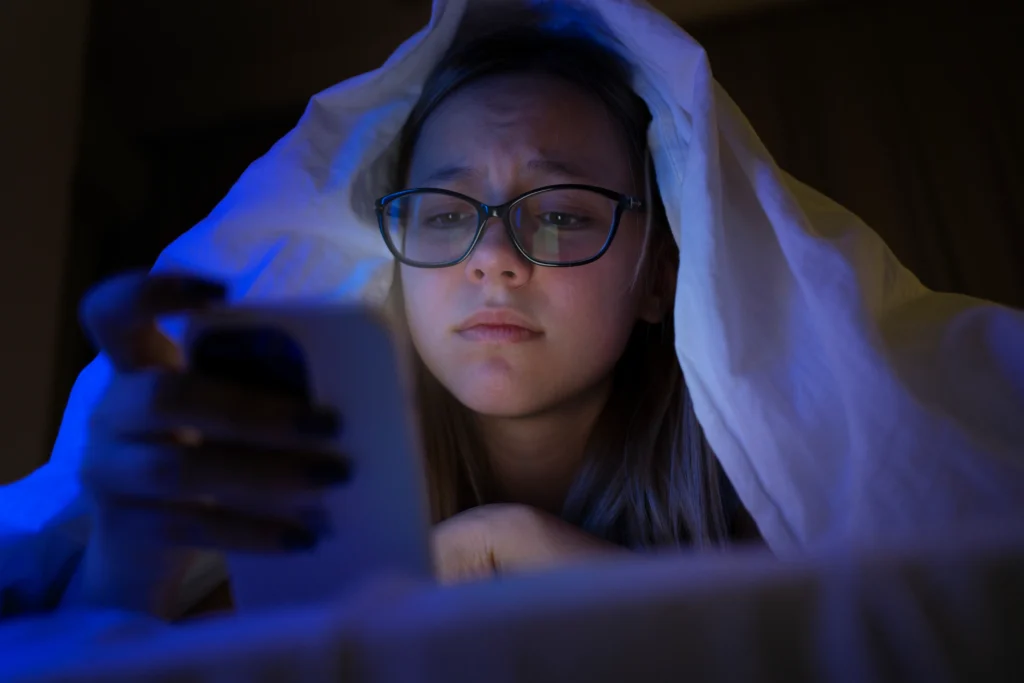
You’re not alone. Across Kerala and beyond, parents are noticing that teens are glued to
their screens – whether it’s late-night mobile games, endless YouTube binges or social
media scrolling. The World Health Organization (WHO) now officially recognizes
gaming disorder as a mental health condition, highlighting how serious the issue has
become.
Yet, many parents struggle to set screen time rules for teenagers that actually last. Strict
bans often backfire and lectures rarely change behaviour.
In this blog, we’ll break down why internet addiction in teens is rising, the signs of
gaming addiction, practical screen rules that stick and when to seek professional
counselling in Kerala or online.
Why Internet & Gaming Addiction in Teens Is Rising
Easy Dopamine from Screens vs Offline Life
Video games and social media are engineered to deliver dopamine hits – quick rewards
that feel exciting. Teens crave that “just one more level” thrill, especially when offline
life feels less stimulating.
COVID-19, Online Learning & Digital Dependence
During lockdowns, screens became classrooms, playgrounds and social hubs. The line
between education and entertainment blurred, leading to internet addiction in students
that continues post-pandemic.
Kerala/India Trends: PUBG Ban & Mobile Gaming Rise
Even after the PUBG ban, new mobile games quickly filled the gap. Mobile game
addiction in Kerala is soaring, with local reports showing increased cases of gaming
addiction counselling requests in schools and clinics.
Gaming disorder is defined in the 11th Revision of the International Classification of
Diseases (ICD-11) as a pattern of gaming behavior characterized by impaired control
over gaming, increasing priority given to gaming over other activities to the extent that
gaming takes precedence over other interests and daily activities, and continuation or
escalation of gaming despite the occurrence of negative consequences.
Signs Your Teen May Have Internet or Gaming Addiction
Behavioral Signs
● Lying about screen time
● Skipping homework or meals to play
● Anger when interrupted
Emotional Signs
● Mood swings or irritability
● Withdrawal from family and offline friends
● Anxiety or low motivation
Physical Signs
● Headache, poor sleep, eye strain
● Fatigue from late-night gaming
Pro-Tip: Self-Check for Parents
Before panicking, ask:
● Does your teen still engage in hobbies?
● Are grades and friendships stable?
If “no” becomes frequent, it’s time to intervene.
These are classic symptoms of gaming addiction and early signs of gaming addiction to
watch for.
The Psychology Behind Gaming Addiction
Reward Loops & Dopamine Hits
Games are designed with levels, rewards and achievements that trigger dopamine,
reinforcing repeated play. It’s the same brain mechanism behind other addictive
behaviors.
Escapism & Peer Pressure
Many teens turn to gaming to escape stress, loneliness or academic pressure. Online
games offer belonging and status – making internet addiction in teens more socially
reinforced.
Lack of Offline Structure
Idle time = screen time. Without routines or outdoor engagement, teens naturally drift
toward gaming for stimulation.
Screen Rules That Actually Stick
Rather than strict bans, these step-by-step rules encourage balance and cooperation.
Collaborate, Don’t Dictate
Set limits with your teen, not for them. Mutual agreements improve follow-through.
Fixed Tech-Free Times
Declare tech-free zones:
● During meals
● 1 hour before bed
● Study sessions
2-for-1 Rule
For every 2 hours of study or chores, reward 1 hour of gaming.
Device-Free Bedroom
Remove screens from sleeping spaces to prevent midnight sessions.
Reward Healthy Offline Activities
Encourage alternatives – sports, music, art, outdoor play – by rewarding participation.
Consistency Across Parents
Avoid mixed signals. Ensure both parents uphold the same rules to prevent manipulation.
Role-Model Digital Balance
Teens mirror behaviour. If parents scroll constantly, they’ll do the same. Practice your
own digital hygiene.
These strategies not only reduce game addiction side effects but also build healthier
habits for life.
What NOT to Do as a Parent
Avoid Sudden Bans
Abruptly removing devices can trigger rebellion.
Avoid Shaming Teens
Shame worsens self-esteem. Focus on understanding and collaboration.
Don’t Compare with Siblings or Friends
Every teen’s relationship with technology is unique. Comparison causes resentment.
When to Seek Professional Help
If you notice:
● Grades dropping
● Aggression
● Broken sleep cycles
● Withdrawal from offline life
It’s time to consider internet addiction treatment in Kerala.
Counselling helps when:
● Home rules no longer work
● Family conflict escalates
● The teen refuses cooperation
MindcareDoc offers specialized gaming addiction counselling in Kerala, combining:
● Cognitive Behavioural Therapy (CBT)
● Behavioural modification
● Family therapy for gaming addiction
● Ayurvedic support for sleep and focus
Sessions are available in Malayalam and English, both in-person and online for NRIs.
How MindcareDoc Supports Families
Teen Counselling
Tailored mobile game addiction treatment in Kerala, addressing both emotional and
behavioural aspects.
Parent Coaching Sessions
We equip parents with communication and discipline strategies that build trust and
compliance.
Online Video Counselling for NRIs
Families in the UAE, USA and Canada can access experienced therapists remotely in
familiar languages.
Final Takeaway: Balance, Not Battles
The goal isn’t to ban screens – it’s to build balance. With understanding, consistency and
professional guidance, your teen can enjoy technology without losing control.
If you’re worried about your teen’s screen habits, contact MindcareDoc today. Our
experts will design a personalized digital detox plan that works for your family.

